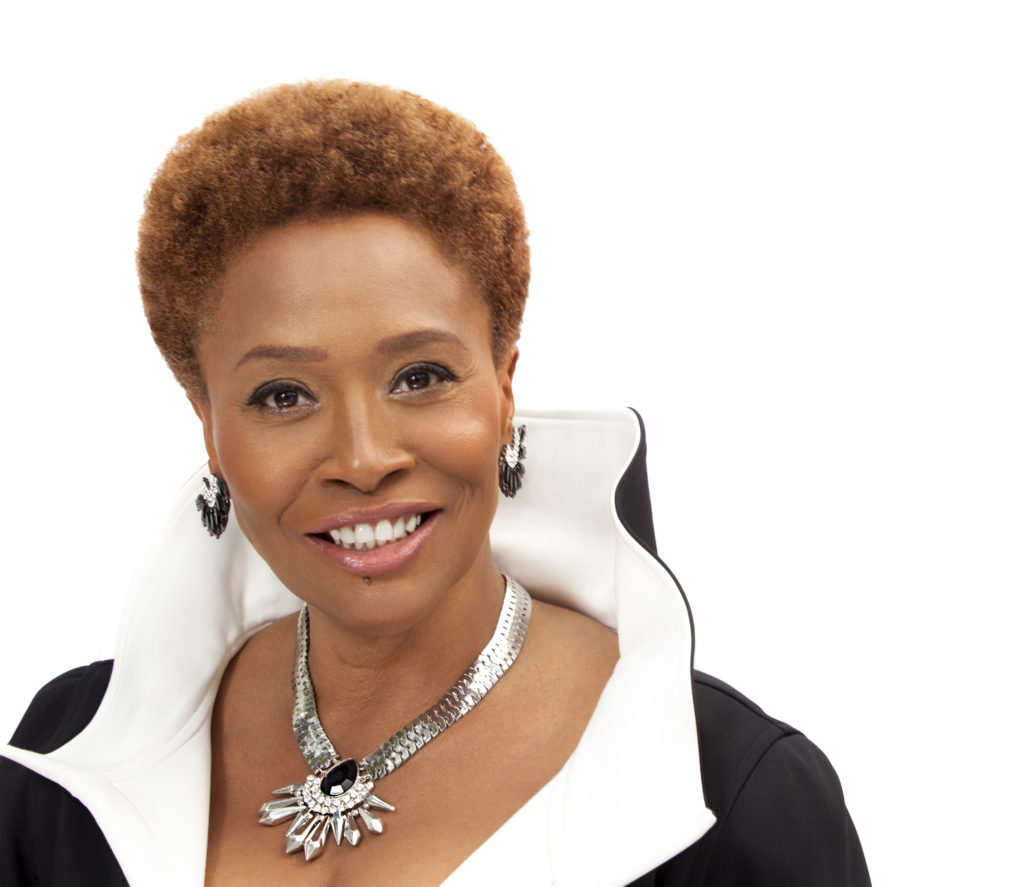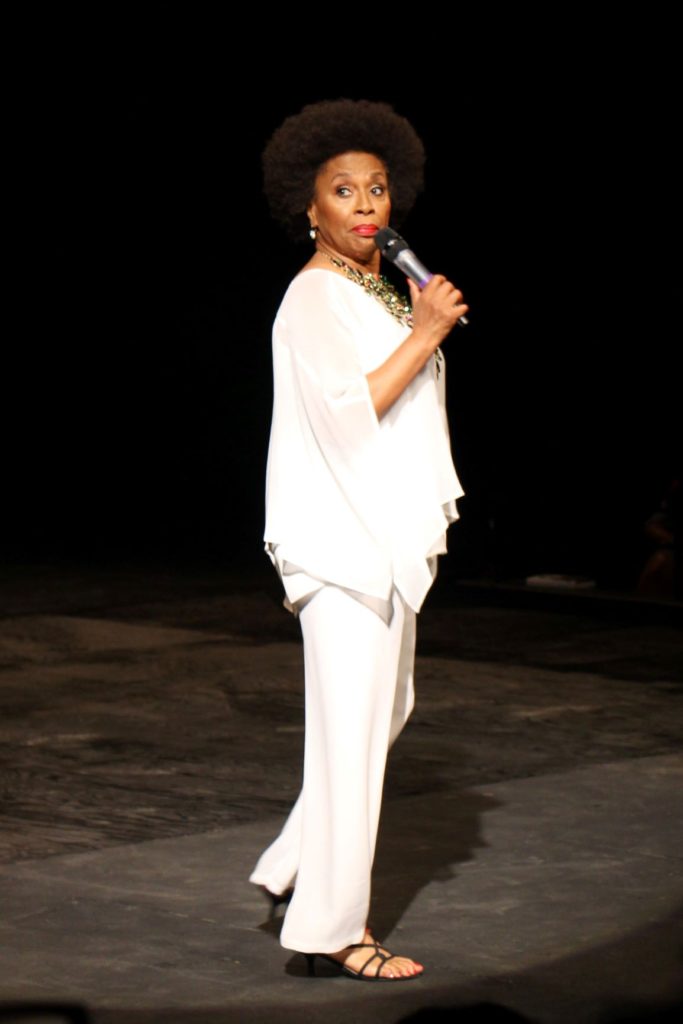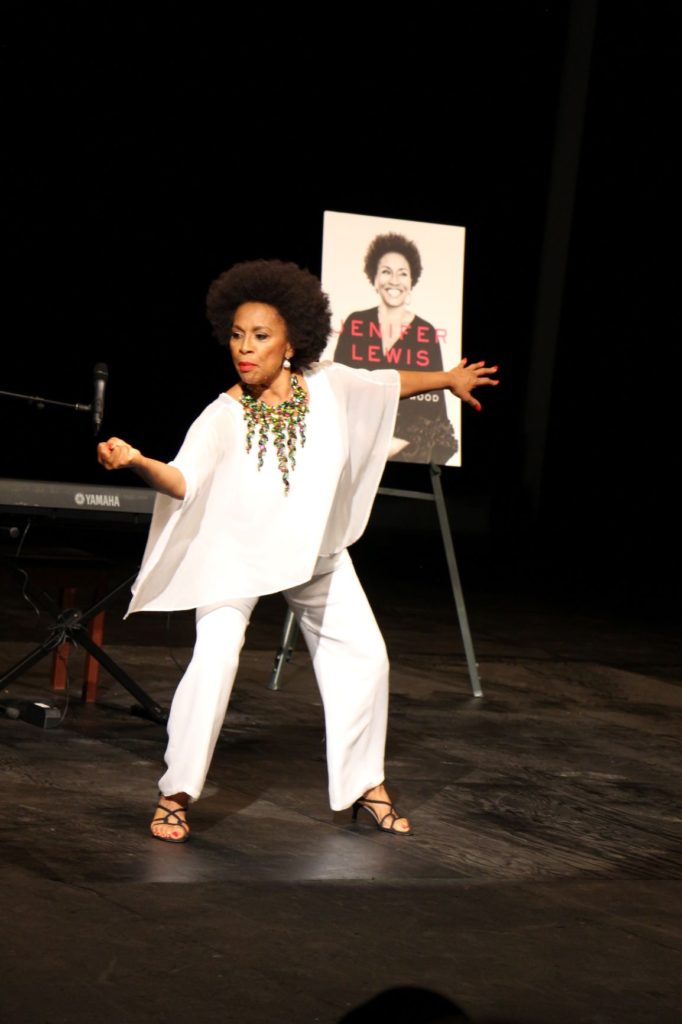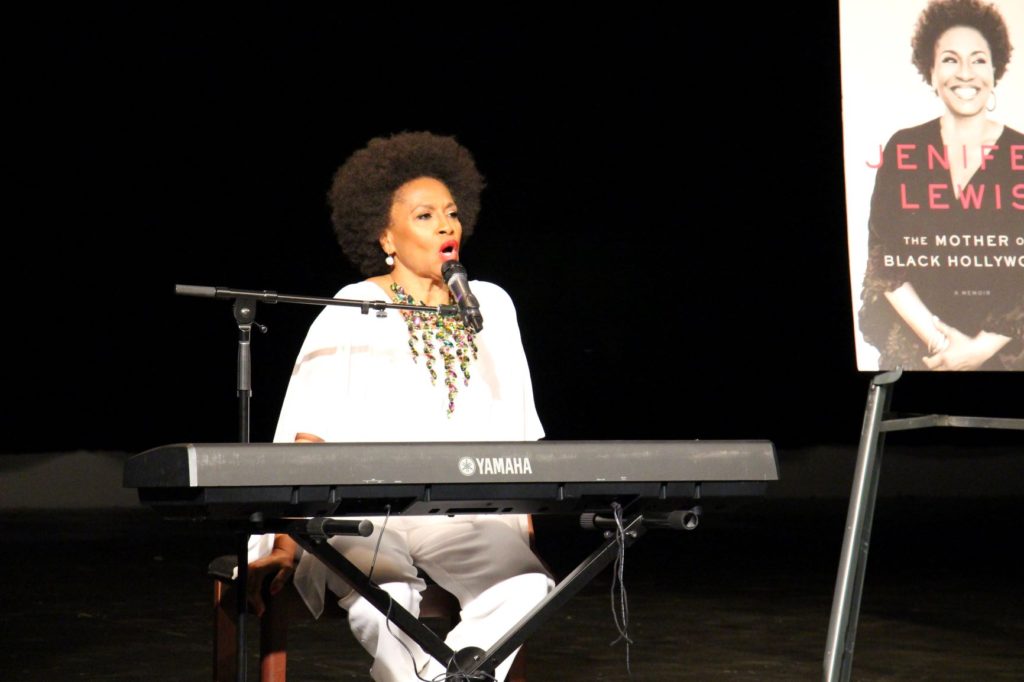
Jenifer Lewis has long been a familiar face on stage, in television shows, like “Black-ish” and in a long list of movies, like “Think Like a Man,” “The Wedding Ringer,” “Meet the Browns” and the iconic “What’s Love Got to Do With It,” among countless others.
She’s also St. Louis-born, and though she has lived in California for decades, she hasn’t forgotten where she came from, showing up around town every now and then.
Most recently, she’s been in the news for garnering a spot on the prestigious Hollywood Walk of Fame for the Class of 2021!
The 63-year-old is also an activist and a singer, who famously wrote and performed a spoken word YouTube response to the death of George Floyd in Minneapolis, entitled “Take Your Knee Off My Neck.”
In 2015, she delivered the commencement address at her alma mater, Webster University, and received an honorary Doctor of Humane Letters for her career accomplishments and international community efforts, particularly as an AIDS activist and mentor to children, and as a Human Rights Campaign Ally for Equality.

She presented a live show at the Loretto-Hilton Center for the Performing Arts in 2018, as part of the tour launching her book, “The Mother of Black Hollywood: A Memoir,” where she regaled the packed theater with songs and stories of her life, along with anecdotes and memories of growing up in the St. Louis suburb of Kinloch.
During one of her past visits, she took the time to talk to Gazelle about her life and career.
Though her outspoken persona that we see in her many film and television roles might seem intimidating, in reality, her take-charge attitude and wit are softened by a warm and gracious demeanor, while still exuding confidence.
She grew up as one of seven children, and from the first time she sang a solo in the Kinloch Baptist Church at the age of 5, she knew she wanted to be a star.
“When I saw the reaction of the congregation, that was it,” Lewis said.
And her humble beginnings didn’t keep her from going to college – even in the mid-1970s.

“In my house, raised by the matriarchal model we had, believe me, I was going to college,” she said. “All my siblings are professionals.”
She earned a bachelor’s degree in theater arts at Webster University in 1979, and said she cried tears of joy when she was asked to be the Webster University Centennial commencement speaker in 2015.
“I was so honored and so humbled. I felt like I have come full circle, and it is very life affirming,” Lewis said.
She said the professors at Webster polished and conditioned her.
“They were so ‘there’ for me – at times pushing me forward; at others, reigning me in,” she said.
At Kinloch Senior High School, she was the captain of the cheerleading squad and president of her senior class.
“Growing up, I tended to be a leader and the alpha female,” Lewis said. “And I always dreamed of being an entertainer.”
She had only one other job in her life – the summer after her freshman year of college, she toasted buns at a McDonald’s restaurant around the corner from Webster.
“I got fired for burning the buns while talking to a co-worker about being a star,” she said jokingly.
Did she want to sing or act?
“I wanted to do it all, like the many ladies who were my role models – Judy Garland, Ethel Merman, Barbra Streisand and Bette Midler. And my heart and soul is Aretha Franklin,” she said.
She headed to New York after graduation, and a month later, landed a role on Broadway in “Eubie.”
“I had no fear back then,” she said. “I had to be a force of nature. Life demands that you don’t take the elevator. You have to take the stairs.”
It wasn’t long before she became a Harlette backup singer for Bette Midler, who is still a cherished friend.
“I couldn’t have had better training than I had with Bette in all of those stadiums in 1983,” she said.
“When people ask me how I became a star, I tell them I never knew I wasn’t one,” she added with a laugh. “You have to own who you are, and I am grateful to be doing what I love and what I truly feel I was born to do.
“And you have to love it to continue. It has to consume your molecular structure,” she said. “The rejections are too many and too great.”
One of the hardest rejections she can remember came early in her career in New York. She auditioned for “Saturday Night Live,” but didn’t make it.
“Who wouldn’t want to be one of the players? At the time, it was very hard to take,” she said.
But as she is often quoted as saying, “It’s When You’re Hardest Hit That You Mustn’t Quit.” And along with some lows, there have been so many highs, it’s hard for her to pinpoint just one.
“Carnegie Hall was a big one, with an electrifying standing ovation, it was quite the night,” she said. “One of my favorite roles was probably Zelma Bullock in ‘What’s Love Got to Do With It?’”
Among her highs and lows, she was diagnosed with bipolar disorder in 1997.
“When I was young, people would laugh and say, ‘that Jenny is crazy,’” she said. “I think people who become entertainers have a kind of extra ‘edge,’ and I never knew it meant something was wrong.”
As the AIDS epidemic began to take the lives of many of her friends – around 200 of them – and her grief was so great that she literally “broke.” She knew she needed some kind of help.
Since her diagnosis, she has kept her disorder “level” with medication and therapy.
“If it’s left untreated for too long, there can be real problems,” she said. “I’m glad I got help, and can continue to enjoy my life.”
She appeared on “The Oprah Winfrey Show” in 2007, where she openly discussed her experience with bipolar.
“I had no idea I was ‘coming out,’” she said. “I wasn’t ashamed of it.”
But after her disorder became public, people began coming to her, talking about themselves or people they loved who also dealt with a mental illness of some kind.
“I continue to talk about it because for so long, mental illness was a taboo in the world, but it’s something that needs to be addressed. No one should have to be too embarrassed to get help,” she said.
Once, in a store in New York, a woman shyly approached Lewis and whispered in her ear, “I want to say thank you for speaking up on ‘Oprah.’ It really helped my sister.”
“That did it for me,” Lewis said. “I knew that if I could actually make a difference for people, I would keep talking about it.”
She said that she owes what she’s accomplished to everyone who has been in her life.
“If just one thing had been different, I wouldn’t be where I am at this moment,” she said. “If my classmates had not elected me president, if I had gotten the part on ‘Saturday Night Live,’ if I had taken different classes in college … one thing can change everything.
“I had the courage to pursue my dreams because my family, teachers and friends encouraged me,” she said. “If you love something, nothing can keep you from it.”






